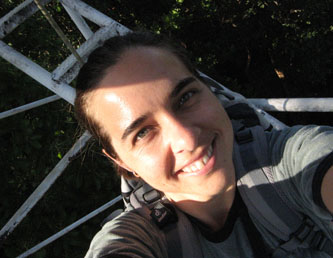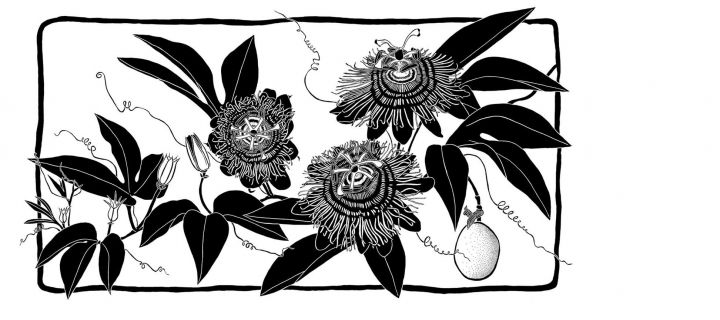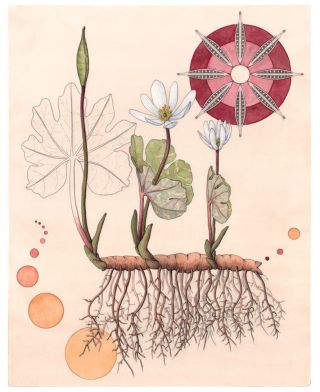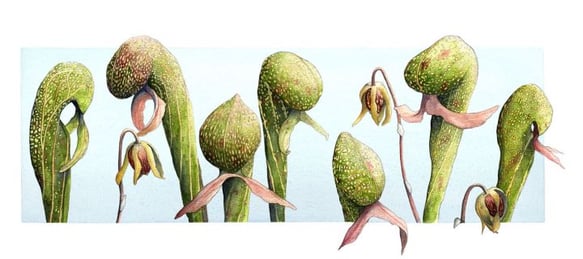Erika Beyer grew up in Oregon and has always enjoyed exploring the outdoors, science, and art. She received a B.A. in Geology from Carleton College in 1999. After finishing her undergraduate degree, Erika spent most of her time exploring by bicycle before completing the intensive science illustration program at the University of California, Santa Cruz. Her illustration (and bug and monkey avoidance) skills were honed while working as a field illustrator for the Smithsonian Tropical Research Institute in Panama. Erika received her Master of Architecture degree from the University of Oregon in 2010. She now works in Eugene as a freelance illustrator and art instructor.
We have been working with the amazingly talented Erika for many years at Mountain Rose Herbs. She has created some of our most favorite designs including the original watercolor paintings found on our Epicurean Organics oil labels. We are so excited to learn how to create our own botanical drawings from Erika during Rootstalk this year. You won’t want to miss her illustration classes!
Enjoy the interview…
1. What classes will you be teaching at Rootstalk this year?
Botanical Field Sketching
Field sketching is a great tool for recording information about plants found in the field. When done with care, these sketches can serve as tools for later identification and be beautiful works of art. Students will see examples of both historical and contemporary botanical field illustrations, learn about field sketching materials and professional tips, and create field sketches of their own.
Please bring: drawing pencils (grades 2B, HB, or H preferred) and/or pens (Pigma Microns are a good choice), a pencil sharpener, eraser (Staedtler Mars Plastic white eraser is a good one), sketchbook or loose sheets of paper. You may also bring colored pencils if you’d like.
Botanical Illustration
Scientists have long relied on illustrators to help communicate information about plants. Botanical illustrators are often asked to create drawings to describe a single plant or relationships between different types of plants or plant parts. Students will see botanical illustration examples and hear professional tips before working on a botanical drawing of their own.
Please bring: drawing pencils (grades 2B, HB, or H preferred) and/or pens (Pigma Microns are a good choice), a pencil sharpener, eraser (Staedtler Mars Plastic white eraser is a good one), sketchbook or loose sheets of paper. You may also bring colored pencils if you’d like.
2. What is one of the most powerful moments you have experienced in the wild or through your work?
My most powerful moment in the wild was the first time I walked through an old growth forest. It changed my sense of scale, color, and sound.
3. What is your primary environmental concern?
Urban sprawl and auto dependence.
4. What can people do to help combat this in their community?
Ride your bike. Carpool. Use public transportation. Walk. Support initiatives that protect open spaces and expand public transportation. Shop and eat locally. Promote safe routes to schools. Support urban density.
5. Are there any projects that you are working on and would like to share?
I am working on a re-design of my website, which should be complete by summer 2011. Visit www.erikabeyer.com to see new illustrations, learn about upcoming talks and shows, and shop online!
6. What do you hope to experience at Rootstalk this first year?
I’m looking forward to learning from the other educators and participants. It seems like an ideal environment in which to share knowledge and experience.
7. What is your favorite plant and why?
I am a big fan of carnivorous plants. As an artist, I really enjoy drawing them because of their unique shapes, patterns, and colors. Plus, what’s not to love about plants that eat bugs?














